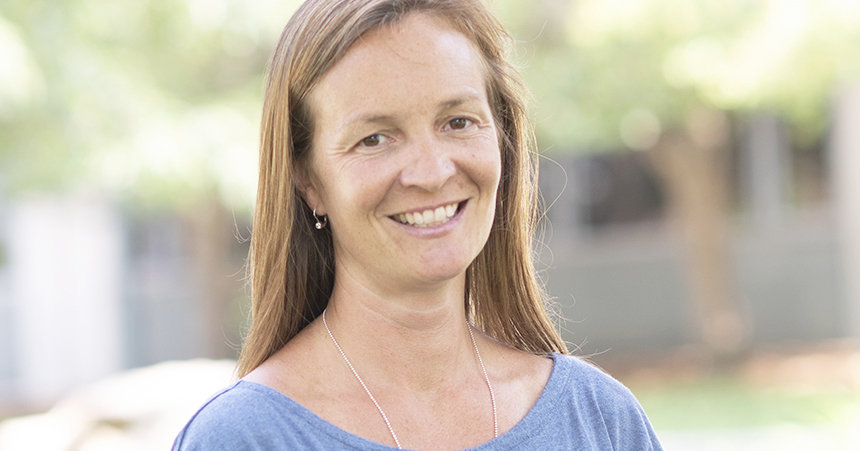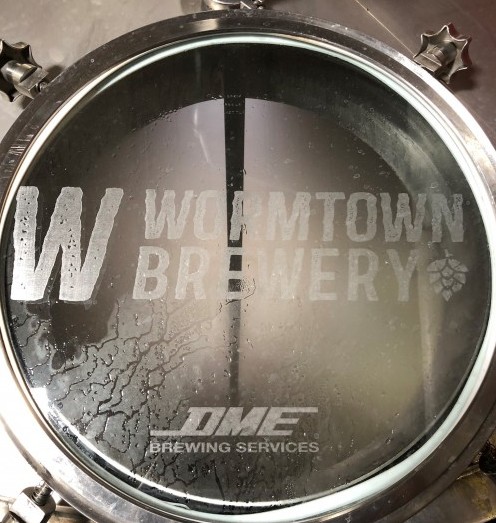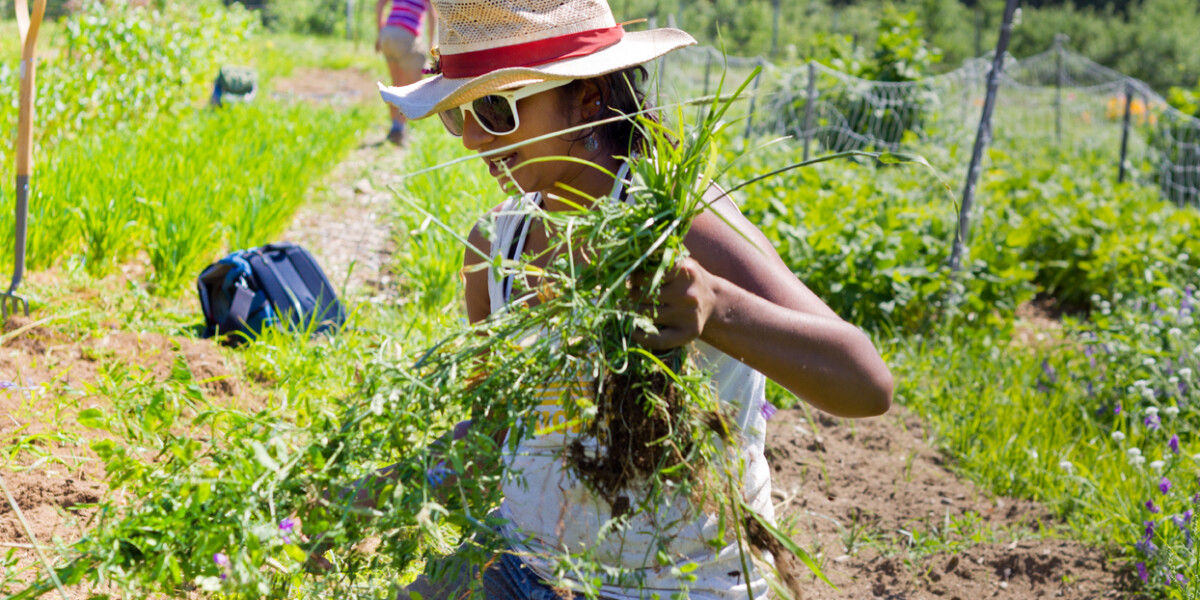-Monique McHenry, PhD, program director for the UVM Certificate in Cannabis Plant Biology program
Cannabis-based products, including hemp-derived cannabidiol (CBD), are marketed as improving health, but few regulations exist to ensure product quality.
Horticulture, extraction, and storage practices are critical to the quality of any cannabis product. That’s where the UVM Professional Certificate in Cannabis Plant Biology program comes in. The new online, eight-week, evidence-based program covers everything from state-by-state agricultural law to plant genetics to post-harvest management.
“We’ll address many questions about cannabis—how it should be stored, UV protection or lack thereof in containers, or how to test label information to determine accuracy,” says program director Monique McHenry, PhD, a botanist with a background in plant diversity and evolution. “For the program, we’ve compiled all the current evidence-based data, and hope to present the science in a way that people from diverse backgrounds can understand.”
A Cannabis Plant Biology Program for Science-Minded Professionals
Offered through the UVM College of Agriculture and Life Sciences and Continuing and Distance Education, the new program is designed for science-minded professionals who want to learn more about the plant Cannabis and what factors change the chemical composition in the plant and retail products.
The program content covers cannabis basics (law, policy, business) and then dives deeper into the science on topics such as plant chemicals, plant taxonomy, plant genetics, and agriculture (including post-harvest handling and bio-botanical extraction). The course also devotes a week to discussing how cannabis affects the human body, educating participants on basic pharmacological principles, and how different modes of administration of cannabis products can affect the human body in different ways.
McHenry, an assistant professor of pharmacology and program director of the Cannabis Science and Medicine program at the UVM Larner College of Medicine, says what differentiates both programs is the same philosophy: rather than relying on anecdotal information, UVM’s curriculum will strictly focus on evidence-based research.
“What I want participants to take away from our new program is an in-depth understanding of cannabis as a plant, the current best agricultural practices (including effects of different post-harvest treatments), and knowledge on how plant chemicals can affect the human body,” she says. “We see a real knowledge gap in cannabis, from understanding laws to the effects different storage methods can have on cannabis-product shelf life, and we want to educate participants with the most current evidence-based science that is available.”
Cannabis Job Gains, Changing Laws
To put the explosive growth of cannabis into context, consider this: There are now more legal cannabis industry workers than dental hygienists in the United States, according to a March 2019 report by cannabis industry site Leafly and Whitney Economics. Ten states and the District of Columbia have legalized cannabis for adult use. More than 211,000 Americans are supporting their families and communities with legal cannabis jobs.
According to the Leafly and Whitney Economics report, annual sales nationwide are nearing the $11 billion mark. In 2018, the cannabis industry posted job gains of 44 percent, and in 2017 the job gain rate was 21 percent. Florida added the highest number of full-time cannabis jobs in 2018, while Pennsylvania registered the most substantial percentage increase. All of this growth shows no signs of slowing down.
While the cannabis industry is experiencing a rapid rise, McHenry says federal and state laws surrounding cannabis and marijuana are keeping the industry on its toes.
The Strengthening the Tenth Amendment Through Entrusting States (STATES) Act, which was reintroduced to Congress in April, would protect state laws regulating marijuana use and exempt cannabis businesses that are legal under state laws from federal prosecution by amending the Controlled Substances Act. Currently, under the Controlled Substances Act, cannabis is a Schedule One level drug—placing it in a more dangerous category than other drugs, such as cocaine and fentanyl.
“This is a unique, nascent industry where you’re watching drug discovery in action,” McHenry says. “Each state has different rules, and there are a lot of misconceptions. It’s completely fascinating to me to watch these laws change, and to try and understand how changes in the law will then affect the complicated issues developing in the cannabis industry.”
Registration is now open for the Cannabis Plant Biology Professional Certificate, an 8-week certificate that focuses on hemp production from seed to sale.
Register for the UVM Professional Certificate in Cannabis Plant Biology program




